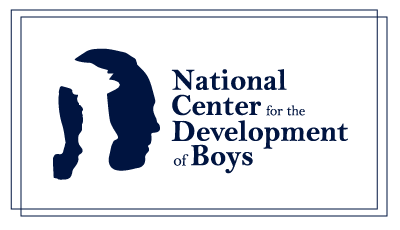 “Boy magic.”
“Boy magic.”
That’s what Troy Kemp saw the first time he set foot on the campus of McCallie School, an all-boys school in Chattanoogna, Tennessee. It was the first time Kemp, then a math teacher, saw an educational environment that encouraged, embraced and accepted boys as they are, and taught boys according to their needs. He saw engaged learners and dedicated teachers and knew, intuitively, that a whole lotta right was going on there at McCallie.
That was 1992. Kemp started teaching math at McCallie later that year; he served as a dorm parent and coach too. He saw more “boy magic.” He learned more about boys and their development, more about how to effectively teach, mentor and coach boys. And in his 20+ years at McCallie, he learned that too few people possess that knowledge. That too many boys are struggling because too many families and educators and communities don’t understand how boys think and what they need.
That message was underscored when a mother from Jamaica — Jamaica! — visited McCallie because she was considering enrolling her son at McCallie. Kemp, then Dean of Admissions, asked the mother what brought her to Tennessee from Caribbean. The mother replied that she’d recently read Boys Adrift, by Leonard Sax, and realized 1) that at most schools, the deck is stacked against boys, 2) that her son would likely thrive in an environment that respected and understood his “boynesss” and 3) that very few such places exist.
Kemp realized then that many, many parents were looking for information and resources to help their sons. By then, he’d been at McCallie a long time; he knew that information about boys and their needs was plentiful, but also scattered and not common knowledge.
The National Center for the Development of Boys was founded in 2015, on the McCallie campus, to fill that gap. The Center is “a research and resource non-profit organization that helps educators, counselors, parents, and others who work with boys to understand more deeply the ways in which boys develop, learn, and grow, as well as the challenges and opportunities boys face.”
Sound familiar?
It does to me, because the National Center’s mission and vision aligns perfectly with BuildingBoys’. The mission of the National Center for the Development of Boys is:
To improve the lives of boys by providing resources and programs for parents, teachers, mentors andorganizations committed to helping with their learning and development as they journey to manhood.
To lead a national conversation about boys and share the most extensive collection of resources relatedto their education and development.
The center exists for the benefit of all who desire to learn more about educating and raising boys andthe journey from boyhood to manhood, regardless of their location or calling.
BuildingBoys is “a haven, resource and one-stop-shop for parents, educators, healthcare providers, community activists and anyone who cares about boys.”
Yep, there’s some serious overlap between our missions, visions and purpose. We both exist for the betterment of boys. We both want to share information about boys and their needs, both want to empower educators and parents.
Kemp now serves as executive director of the National Center for the Development of Boys. We spoke last week, and let me tell you: this man’s passion is blazingly apparent. He has high hopes for the Center — and the passion and enthusiasm required to get the job done. He knows there’s no need to re-invent the wheel; already, so many wonderful books and articles have been written about boys and their development, and so many researchers and educators have created and established techniques and processes to help boys as they learn and grow.
The Center, Kemp says, is intended to become a destination, a clearinghouse. What iTunes is to music — that’s what the Center intends to be for anyone seeking info or ideas regarding boys.
The Center is just barely a year old, but has already taken some impressive steps. They’ve hosted multiple Understanding Boys workshops. Partnered with Michael Gurian and the Gurian Institute. And started focusing national attention on the needs of boys.
I’m eager to see what they do next.
Follow the National Center for the Development of Boys on Facebook and Twitter. You can sign up for their newsletter too.






